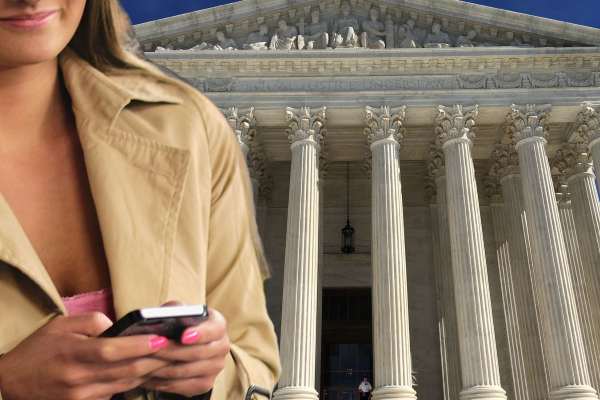Published on the 23/05/2019 | Written by Jonathan Cotton

When is an Apple App store customer not an Apple customer?…
It’s been a no good, very bad couple of weeks for Apple, with the Supreme Court clearing the way for an antitrust lawsuit against the company.
Last week the US Supreme Court ruled that a case brought against Apple in lower court proceedings – known as Apple v. Pepper – could proceed. It’s a major defeat for the tech giant. Behind the year-long Apple v. Pepper lawsuit are four iPhone users who allege that the company has unlawfully monopolised the iPhone app aftermarket.
Apple had moved to dismiss the case, but where things get interesting is in the surprising logical leap Apple has chosen as its defence: App Store customers, Apple argued, could not sue the multinational because – wait for it – they aren’t Apple customers.
Apple’s line-drawing does not make a lot of sense, other than as a way to gerrymander Apple out of this and similar lawsuits
So who is? According to Apple, it’s the developers who are Apple customers, with the company simply facilitating business between developers and third party app purchasers. Following that logic, its developers that set the price, not Apple, and as such iOS App Store users have no legal means to file antitrust lawsuits against Apple.
But in a four to five split decision, the Supreme Court has declared that Apple’s version of things simply ain’t so.
“Apple’s line-drawing does not make a lot of sense, other than as a way to gerrymander Apple out of this and similar lawsuits,” wrote Justice Kavanagh in the majority opinion document.
“In particular, we fail to see why the form of the upstream arrangement between the manufacturer or supplier and the retailer should determine whether a monopolistic retailer can be sued by a downstream consumer who has purchased a good or service directly from the retailer and has paid a higher-than-competitive price because of the retailer’s unlawful monopolistic conduct.
“It is undisputed that the iPhone owners bought the apps directly from Apple.”
So the decision clearly posits that its app purchasers, not creators, that are Apple’s direct customers, and therefore the Apple v. Pepper case will proceed.
That’s likely not a business-ending blow for Apple – at least not in the short term – but it throws into question Apple’s lucrative aftermarket app business model which sees it take a 30 percent cut from every app sold through the store.
It also throws into question the legal standing of those businesses, such as Amazon, who frame their business model as a ‘marketplace’ rather than a retailer.
Of course Apple isn’t taking the decision lying down. In a statement Apple says it is confident it will prevail “when the facts are presented” and that the App Store is not a monopoly “by any metric.”
“We’re proud to have created the safest, most secure and trusted platform for customers and a great business opportunity for all developers around the world.
“Developers set the price they want to charge for their app and Apple has no role in that. The vast majority of apps on the App Store are free and Apple gets nothing from them. The only instance where Apple shares in revenue is if the developer chooses to sell digital services through the App Store.
“Developers have a number of platforms to choose from to deliver their software – from other apps stores, to Smart TVs to gaming consoles – and we work hard every day to make our store the best, safest and most competitive in the world.”



























